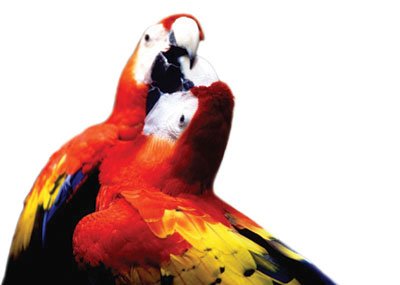Lucky dog! That may have been your first thought when you heard
that Leona Helmsley left $12 million to her Maltese, Trouble, when
she died.
Lucky dog! That may have been your first thought when you heard that Leona Helmsley left $12 million to her Maltese, Trouble, when she died.
But then, perhaps, your second thought: What’s going to happen to my own pets?
The first thing you need to know about providing for your animals after your death is that strictly speaking no one, not even a multimillionaire, can leave money directly to their dog, cat or boa constrictor.
“Technically, animals lack the legal capacity to hold or own property – they are property in the eyes of the law,” says Peter Wendel, professor at Pepperdine University Law School.
In fact, what Helmsley did was create a trust for the care of her dog. It’s something anyone can do, even if you don’t have millions of dollars.
“The essence of a trust is one party gives property to a second party for the benefit of a third. In the case of a trust for the care of an animal, the ‘third party’ is the animal,” Wendel said.
A trust separates the financial and caregiver roles, which can have advantages over leaving money directly to a caregiver in a will.
Leaving money to a friend to care for a pet sets up a conflict between the pet and the money, cautions Arthur Kroll, CEO of KST Consulting Group, a attorney who deals regularly with estate planning and pet trusts.
“Not everybody loves a cat like you do, or a parrot,” Kroll observes.
If you leave the money in a will, the court may not enforce the requirement to care for the pet – and the money will still belong to the neglectful caregiver.
In contrast, trusts separate the function of the trustee – who handles the money – and the caregiver of the pet. This makes it easier to resolve some kinds of problems, such as selecting an alternative caregiver if necessary.
Finally, a major advantage of a trust over a will is that a will does not take effect until after your death, and after probate. A trust becomes effective the moment it is created. This means that a trust can care for your pet if you are alive but incapacitated.
Regulations for trusts differ in different states. Most states now have laws that specifically recognize pet trusts. But even if your state doesn’t, an attorney can still create one using the laws of another state, says Rose Drupiewski, an attorney practicing in Georgia.
However you do it, Kroll emphasizes the importance of formalizing arrangements.
“Most people think of pets as family members. However, to the law they are tangible personal property. They’re treated in the same fashion as the ring on your finger. If you do nothing, then whoever you give your personal property to will get your dog,” Kroll said.
When setting up the trust, consider the current expenses for the care of your pet – difficulties can be caused equally by leaving too much money as too little – and what specifics you want to be contained in the trust agreement.
Dupriewski says that you may not want detailed care instructions for the animals to be included. “It makes it much more expensive because you’re paying an attorney to draft it,” he says.
But if there are specifics that you are committed to, for example, where the animal will live or who its vet will be, “if it’s in the trust agreement, it’s much more enforceable.”
The responsibility of trustee can normally be handled by a bank, according to Kroll, so the main consideration is choosing a caretaker. Be careful to consider life expectancy for both the pets and the caregiver. With a parrot living to be about 75 years old, it may very well outlive your spouse, for example.
Kroll is personally familiar with this issue: He and his wife Lois have their own pets that they have provided for including a shih tzu, a canary and an umbrella cockatoo. Cockatoos “can live for 60 or 70 years,” Lois says, while she and her husband are already in their 60s.
They also have koi fish, which can live for decades.
Kroll says that the koi are no problem. “We have a waiting list for them – there are any number of people in Scarsdale who are willing to take them into their pond.” Nor is the dog, which is going to their daughter. “Everyone wants the dog,” he says.
The cockatoo is the most complicated. A nephew who already has two parrots is designated as the caretaker, and because of the parrot’s long lifespan, a younger niece is named as backup. However, Kroll says that the instructions he’s left behind are fairly basic, with none of the exotic clauses that make the news.
“There’s nothing unique with the exception that she likes snap peas, which are fairly expensive. Our grocer loves us for buying all these snap peas!” he says.
Harriette Rose Katz, wedding and event planner and author in New York City, has set up a trust for her bichon and five cats, and is passionate about the need for a pet owner to take this responsibility.
“They’re my babies. Because they’re so important to me, I felt I had to take care of them. What if something happens to me?”
“I have a great family, but everyone has their own lives,” Katz says.
“You don’t have to be wealthy to do this,” Katz says. “You need to make sure there are people who will take care of your animals. They are completely dependent on you.”











